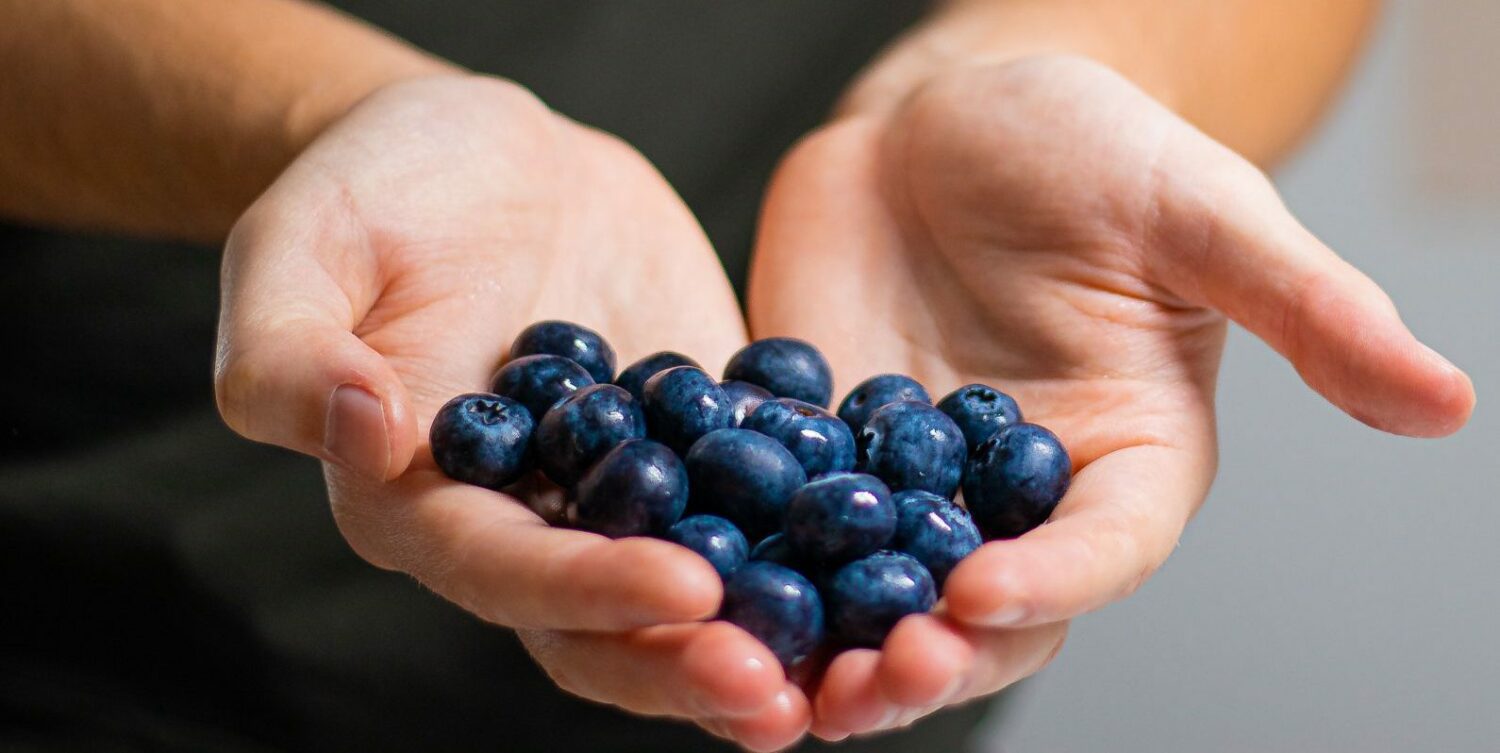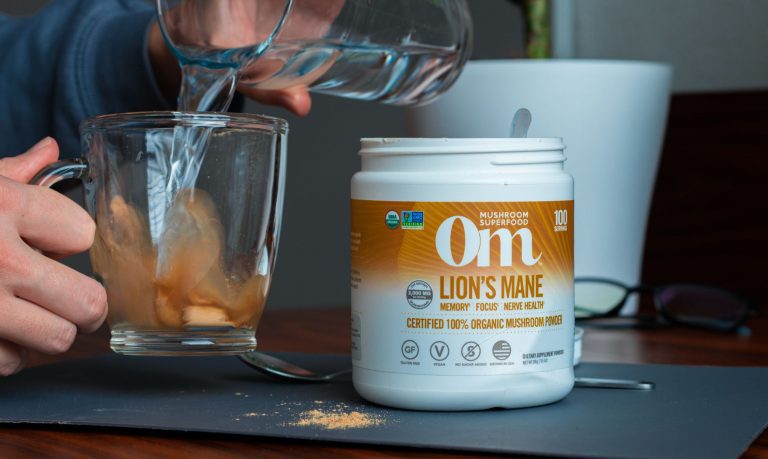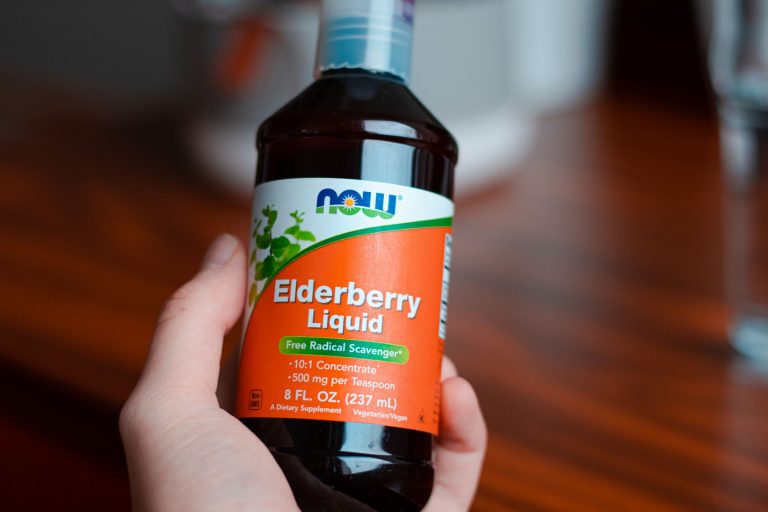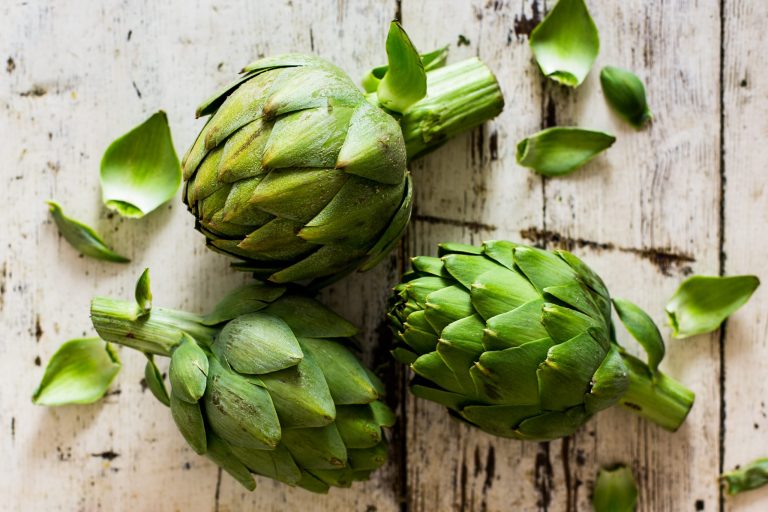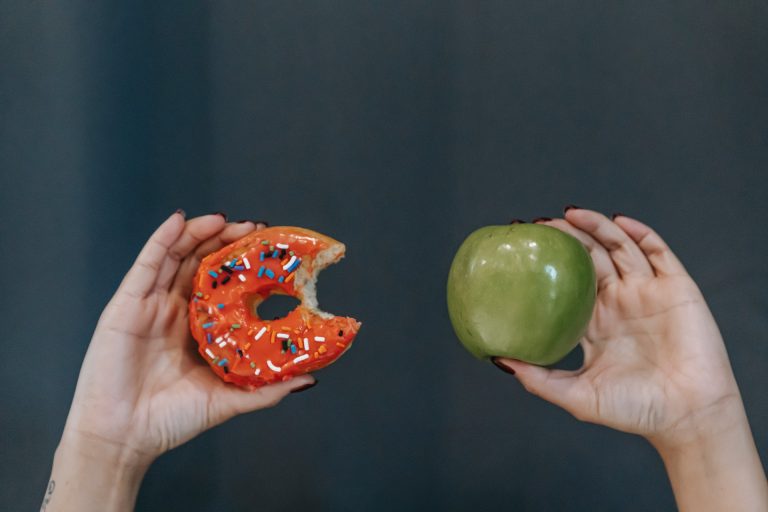Top 8 Health Benefits of Blueberries: Cognition, Longevity, and Heart Health
Blueberries are one of the most popular and healthy berries packed with tons of vitamins, minerals, and antioxidants. The health benefits of blueberries extend beyond a simple nourishment. Berries are rich in fiber which supports gut health and digestion as well. Let’s jump into it.
Blueberry Superpower
Blueberries hold one of the highest ORAC (stands for oxygen radical absorbance capacity) values of all superfoods, with a score of 962. (1)

Anthocyanins
Blueberries are blue, purple, or dark brown-reddish in color, due to the pigments known as anthocyanin that are present in them, with many anti-inflammatory properties.
Blueberries are filled with water, around 85%. They hold an abundance of nutrients while providing us with a great high-fiber and low-calorie option, great for diabetics or calorie-restriction diets.
Besides the main vitamins in them, blueberries are antioxidant-rich foods containing various flavonoids, phytochemicals, and anthocyanins.
There are many different ways to incorporate blueberries into your diet or to use them as an extract, tincture, or even powder form for the benefits that the special bioactive compounds offer.
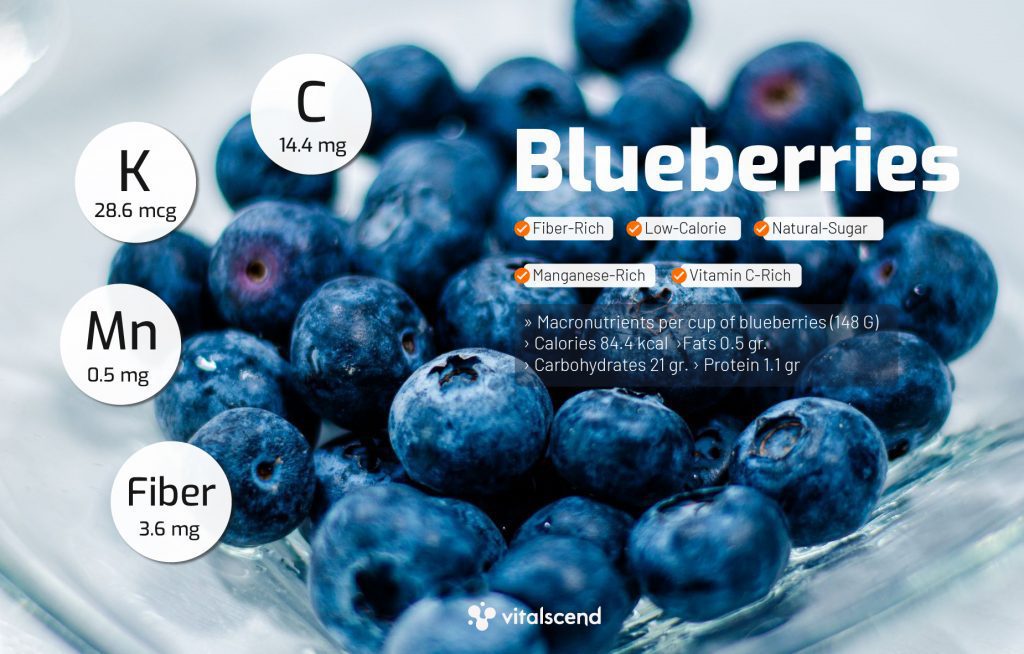
Blueberries Nutrition
It is not a surprise blueberries are in the category of the top 10 superfoods on the planet. This fruit is loaded with many essential minerals, phytonutrients, and flavonoids. These act as antioxidants, reducing DNA damage, and oxidative stress.
Blueberries are packed with many vitamins, as well as some carotenoids like lutein and zeaxanthin, which can improve eye health. Blueberries are also a low-calorie, high-fiber food that can be beneficial for diabetics and people on calorie-restrictive diets while providing a boost to their digestive system.
Per 1 cup of blueberries measuring 148 grams, it can provide you with (2)
Macronutrients:
- Calories: 84.4 kcal
- Carbohydrate: 21.4 grams
- Protein: 1.1 gram
- Fats: 0.5 gram
Micronutrients:
- Vitamin C: 14.4 mg (24% DV)
- Vitamin K: 28.6 mcg (36% DV)
- Manganese: 0.5 mg (25% DV)
- 4% DV in Vitamin E and Copper
- 4% DV in Vitamin B1, B2, B6
We can see from this list, blueberry is low in calories, but its nutrient-dense profile loaded with vitamins and minerals doesn’t fall short of its host, being a great superfood option.
Now the real Blueberry health-beneficial effects lie in its bioactive compounds, not just in its vitamins and minerals. This rich powerhouse contains many: (3)
| Anthocyanins | malvidins, delphinidins, pelargonidins, peonidins, petunidin, and cyanidins |
| Hydroxycinnamic acids | caffeic acid, ferulic acid, coumaric acids |
| Hydroxybenzoic acids | gallic acid, protocatechuic acids |
| Flavonols | kaempferol, quercetin, myricetin |
| Flavan-3-ols | catechins |
| Stillbenoids | pterostilbene, resveratrol |
Many of these bioactive compounds serve as cell cycle regulators, they provide protection at a cellular level and exhibit high biological activity.
Some of these compounds, like quercetin, resveratrol, catechins, and anthocyanins have many anti-inflammatory effects and can support health, reduce inflammation and may potentially increase lifespan, improve health or reduce the risk of chronic inflammation-related diseases. (4)
The Amazing Benefits of Blueberries
Mainly because of their nutrient-rich profile and pretty high antioxidant content, blueberries as well as other berries provide multiple health benefits.
1. May Improve Heart Health
Reduces LDL & blood pressure, Improves blood flow
Blueberries are a rich source of fiber and anthocyanins – which give them their deep purple color. Aside from this, blueberries are rich in folate, vitamin B6, potassium, and vitamin C which are beneficial for heart health and blood pressure regulation.
Anthocyanins are flavonoids that can act as antioxidants, thus reducing inflammation. Anthocyanins can also lower blood pressure and improve circulation.
Anthocyanins & Polyphenols effect
- A combined intake of two anthocyanin-rich berries strawberries and blueberries was correlated with a reduced risk of myocardial infarction. (5)
- Berries like blueberries, cranberries, and strawberries contain powerful anthocyanins which can assist in LDL oxidation, lipid peroxidation, glucose metabolism, and total antioxidant capacity. It is believed that they can improve blood flow by increasing Nitric Oxide levels & decreasing oxidative stress. (6)
- Polyphenols in blueberries may reduce inflammation, DNA damage, and oxidative stress, thus supporting heart health. (7)
Anthocyanin supplementation is correlated with lower blood pressure, and this review of 66 human intervention trials proves it too. It is important to note that anthocyanin content will differ from extracts to food to dried juice and duration as well as other factors, which can determine how what anthocyanin content we will get. (9)
Reduction in LDL & Blood pressure
In this Meta-Analysis, the effects of berries on cardiovascular risk factors were examined/reviewed. Berry consumption overall had a significant effect on reducing levels of LDL, the bad cholesterol. (10)
Aside from these fancy polyphenolic compounds or flavonoids, the mechanisms of Blueberry’s effect on cardiovascular health can also be attributed to its Vitamin C and Vitamin B6 content as vitamin B6 intake is associated with reduced risk of cardiovascular diseases. (11)
Vitamin C can reduce LDL oxidation and potentially reduce atherosclerosis, while also affecting lipid profile and arterial stiffness. Vitamin C deficiency is associated with the risk of cardiovascular diseases. (12)
summary
Blueberries are rich in antioxidants, polyphenols, flavonoids, and anthocyanins which can be beneficial for heart health, due to reducing oxidized LDL, lowering blood pressure, exerting anti-inflammatory properties, and supporting healthy endothelial vascular walls. They are also rich in Vitamin B6, vitamin C, and folate which can support healthy cardiovascular function.
2. Anti-aging properties | Promotes Longevity
Look younger, Reduce wrinkles, increase collagen production
We all know that mild to moderate drinking of high-quality red wine has been associated with health, longevity, and decreased risk of cardiovascular disease. People who lived longest, the ones who lived in the Blue Zones consumed red wine. How can this be connected to Blueberries and their potential effects on promoting longevity?
Resveratrol, the Elixir of life
Well, red wine exerted its beneficial effects due to its high antioxidant content, in alcoholic and alcohol-free portions. A wide range of antioxidants like resveratrol, catechin, epicatechin, and proanthocyanidins are the main reason behind it. It was found that these compounds may induce the expression of longevity genes. (13)
In the diet of fruit flies, blueberry extract prolonged their lifespan by 10%. (14)
Blueberries are rich in Resveratrol, which is a natural phenol that may exert cardioprotective and longevity-supporting effects. It belongs to the category of molecules known to increase lifespan and extend life. (15)
Clean, Smooth, Glowing Skin
How can blueberry help your skin? Well, besides hormone balancing and oil-neutralizing properties the blueberry’s anthocyanins may have, they can also improve blood flow. berries are also rich in vitamin C and antioxidants which help produce collagen and extract dead skin cells.
Besides this, blueberries contain other fat-soluble vitamins such as vitamin A and vitamin E, both of which support healthy skin function. The antioxidant profile of blueberries can make your skin glow and look fresh, smooth, and hydrated. It can give you youthful-looking skin and protect it from sun damage.
- Anthocyanins are proven to protect the skin from UV damage and inflammation. This can prevent signs of aging or at least prolong youthful-looking skin. Acylated anthocyanins have been shown to improve pH balance, which suggests a more alkaline environment and less acidity in the skin. (16)
- 1 cup of fresh blueberries contains 14.4 mg of Vitamin C. Vitamin C is a crucial vitamin for collagen biosynthesis and can boost your collagen production. It does this by stimulating lipid peroxidation which has malondialdehyde, as a by-product that can stimulate the expression of the collagen gene. (17)
Collagen is a fibrous protein that supports the structure of tissues and improves skin hydration, density & elasticity. (18) Applied topically it can reduce wrinkles and be used as an anti-aging agent in skin treatments. (19)
summary
Blueberries are rich in vitamin C which can boost collagen synthesis, thus promoting healthy, youthful-looking skin. Blueberries have many anthocyanins and polyphenolic compounds that are known to fight inflammation, thus decreasing oxidative skin cell damage and UV damage. They can help to moisturize your skin and may potentially reduce wrinkles and skin-aging signs.
3. Aids in Eye protection
Beneficial for ocular health
Blueberries are known to help improve vision and eye health, as well as reduce eye fatigue. This superfood contains many essential nutrients that can help with reducing inflammation. Blueberries contain many vitamins like vitamin C and vitamin K, which have been associated with promoting eye health.
The magic here is that blueberries, as well as other berries, contain special carotenoids, known as lutein and zeaxanthin.
Per one cup of blueberries, which is 148 grams, we get around 116-118 mg of lutein and zeaxanthin (carotenoid combination). Blackberries are a little higher, providing around 170 mg of these carotenoids.
Lutein
Zeaxanthin
Lutein is a color pigment in the human eye, both in the retina and macula. It protects the eye from sunlight damage and functions as a light filter. It may be a potential agent in the prevention of age-related macular degeneration that leads to vision impairment. (20)
Zeaxanthin is a carotenoid too and protects and maintains healthy eye cells. With Lutein, they function to filter harmful high-energy blue wavelengths of light. These antioxidants protect ocular tissues against lipid peroxide damage. (21)
Some bioactive compounds that are present in blueberries may help in supporting ocular health. Besides lutein and zeaxanthin, the main two, blueberries are also rich in flavones like resveratrol and quercetin. Antioxidants present in blueberry may help reduce inflammation and improve oxygen delivery to the eye. (22)
summary
Blueberries are rich in certain antioxidants, flavonoids, and carotenoids which can protect eyes from blue light and reduce inflammation. Some of these compounds were found to have positive effects in supporting ocular health. Being rich in Vitamin C, vitamin K, Zeaxanthin & Lutein, Quercetin, and Resveratrol, blueberries may also improve blood flow and oxygen delivery to the eye.
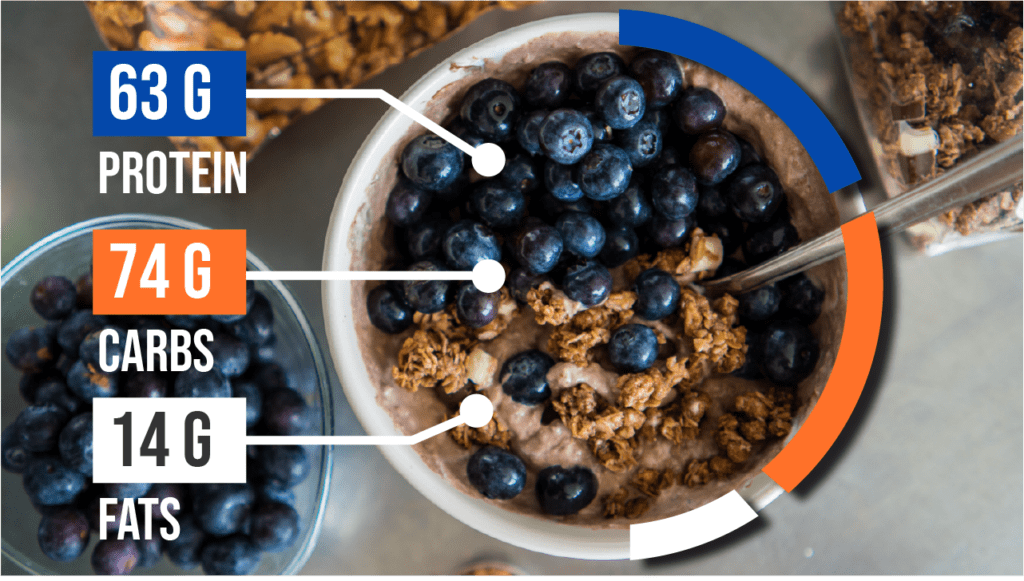
4. Could Improve digestion
Increases bowel movement, prevents constipation
148 grams or one cup of blueberries contains 4 grams of fiber at 85 calories.
Blueberries are high-fiber low-calorie fruit. This makes them a perfect suit for diabetics since fiber can help with stabilizing blood glucose levels, improving bowel movement, and satiety. (23) (24)
Because of the fiber content, blueberries can maintain regular stool frequency, thus preventing constipation. The insoluble, dietary fiber doesn’t dissolve and it is not broken down but supports satiety and digestive system function.
Blueberries are rich in Manganese, a trace mineral required for normal brain & nervous system functioning. It is an essential mineral, needed in low amounts stored in the kidneys, liver, bones, and pancreas.
The mechanism behind fiber is increasing colon pressure, by improving feces volume, which stimulates bowel movement.
- Manganese plays a role in controlling blood sugar, in fact, in one study it was shown that manganese deficiency, as well as some other minerals, was associated with diabetes. (25)
- This mineral is stored in the pancreas and may assist its function in insulin production, thus helping with blood sugar regulation. (26)
- Besides its effects on insulin and blood sugars, this trace mineral plays a major role in nutrient metabolism, and also functions as a co-factor for many enzymes. It supports amino acid utilization and digestion and conversion of food to energy. (27)
summary
Blueberries are a rich source of Manganese which can help with the conversion of food into energy. Trace mineral plays important role in regulating many enzyme functions. This fruit is rich in fiber, can potentially stimulate bowel movement, and prevent constipation.
5. Has Potent Antioxidant & Anti-inflammatory properties
Scavenges Free radicals, Reduces Oxidative stress and DNA damage
Since inflammation is the major cause of many diseases, reduction of oxidative stress and inflammation can reduce DNA damage. The more inflamed and oxidized we become, the more prone to diseases we are, and the shorter we’ll live. (28)
Antioxidants are exactly the compounds we are searching for if we want to reduce DNA damage and oxidative stress, as they scavenge free radicals.
Many flavonoids, the polyphenolic substances in blueberries possess anti-viral, anti-microbial, and anti-inflammatory effects in animals and humans. They can target and inhibit specific pathways associated with inflammation. (29)
Due to blueberry’s high proanthocyanidin and anthocyanin content, it can exert some anti-inflammatory effects. Blueberries won the contest in antioxidant capacity compared to blackberries and strawberries. (30)
Biohack
Can you get more antioxidants from Blueberry Juice?
The steam pretreatment process increases phenolic content, anthocyanin retention, and antioxidant capacity in blueberry juice.
Per one cup of fresh blueberries (148 grams), you get 14.4 mg of vitamin C which represents 24% DV. Being high in vitamin C, there is no surprise it has super powerful antioxidant properties.
In sixty-four obese patients that had high levels of inflammatory markers or were hypertensive, Vitamin C significantly reduced levels of C-reactive protein, Interleukin 6, fasting blood glucose, and triglycerides after 8 weeks of treatment. 500mg used twice daily has potent anti-inflammatory effects. (31)
Anthocyanins were shown to exert some DNA protective effects, due to a reduction in oxidative stress. This bioactive component may prevent aging and age-related diseases, because of its ability to scavenge free radicals. (32)
summary
Blueberries can fight inflammation, decrease oxidative damage, and help to scavenge free radicals. These anti-inflammatory effects are possible due to the presence of many polyphenols, flavonoids, and anthocyanin that exert many antioxidant-like effects.
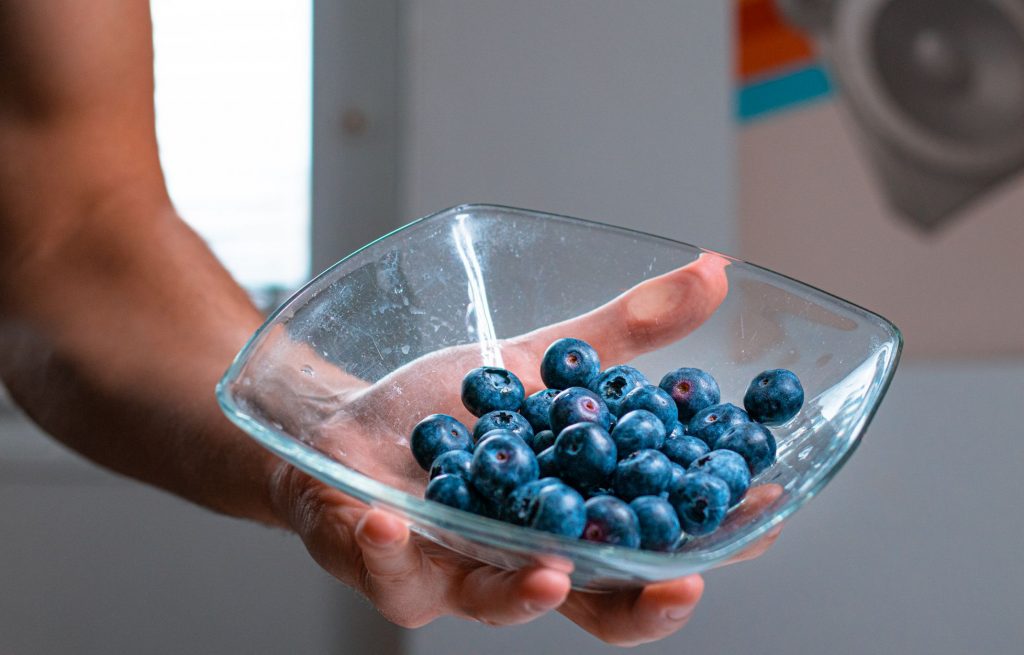
6. Supports Brain Function
Improves Memory, Learning & Cognition
The human brain deteriorates with age. This is thought to be the natural brain aging, a process in which we lose memory and decrease mental performance. But at the same time, lots of studies support the idea that decreasing neuro-inflammation can enhance mental performance, so what can we do?
Antioxidants have anti-inflammatory effects that reduce oxidative stress. If we can decrease brain inflammation, we may not just improve brain performance and boost memory, but also potentially prevent neurodegenerative diseases, such as Alzheimer’s and Parkinson’s.
Supports brain function in children
In 27 children aged 7-10 years, separated into three groups, the ones that consumed wild blueberry powder (15 or 30 grams) showed memory improvement, recall, and accuracy. (33)
Reduces brain inflammation
Some studies even confirmed that long-term consumption of berries can increase the accumulation of flavonoids and polyphenols which may exert antioxidant-like effects on the brain. This can prevent cognitive decline and improve brain performance, due to improved cell-signaling and reduced neuron damage. (34)
In older adults, blueberries improved memory, due to their high polyphenolic compounds like anthocyanins, which have multiple anti-inflammatory effects. Anthocyanins were associated with improved nerve signaling in the brain centers responsible for memory function. In 12 weeks there was an improvement in associate learning and word recall, plus reduced depressive symptoms from using wild blueberry juice. (35)
Prevents cognitive decline
People consuming berries were less prone to brain aging and cognitive decline in comparison to those who didn’t. Flavonoids in Berries exerted some beneficial effects in supporting brain function. (36)
Besides modulating inflammation, bioactive compounds in berries have been found to modulate other cell survival, neuron signaling, neurotransmission, and neuroplasticity pathways. Compounds such as caffeic acid, catechin, quercetin, tannin, and kaempferol have many neuroprotective effects that may help in age-related cognitive decline and the prevention of Alzheimer’s and Parkinson’s disease. (37)
summary
Improved Brain function in terms of memory, cognition, and mental performance along with neuroplasticity (the brain’s ability to adapt) have been associated with the consumption of berries or bioactive compounds in them. Berries can also reduce neuroinflammation and may have neuroprotective benefits, thus reducing cognitive decline or preventing neurodegeneration.
7. Supports Bone Health
Promotes bone strength & mineralization, Prevents bone-loss
Blueberry contains almost all bone-friendly vitamins and minerals. It has calcium, zinc, iron, phosphorus, magnesium, and even manganese which can improve your bone health.
Blueberry juice may also protect bone precursor cells against oxidative stress, exhibiting an antioxidant-life effect. (38)
Besides some of the essential minerals that play a major role in your bone health, it is important to understand the acidic vs alkaline environment for your bone health, and this is where manganese jumps in.
Manganese can provide a healthy alkaline environment, thus promoting a healthier bone environment by combating acidity. As Manganese can help alkalize, no need for a further breakdown of calcium. Besides this, manganese acts as a co-factor in the formation of bone cartilage and bone collagen & bone mineralization. (39)
Polyphenolic compounds have been found to inhibit transcription factor NF-kB which can suppress osteoblast activity, and increase osteoclast activity, In other words, accelerate bone loss and slow down bone formation. (41)
Aside from all the bioactive compounds and their effects in modulating some hard-to-remember pathways, blueberries have multiple vitamins in them that can support healthy bones.
Per cup of blueberries, we get 28.6 mcg (36% DV) of Vitamin K and 14.4 mg (24% DV) of Vitamin C which is essential for healthy and strong bones.
- Vitamin K, a fat-soluble, multi-functioning vitamin, plays a major role in bone turnover, having some anabolic effects, plus it promotes osteoblast differentiation and it plays role in bone mineralization. (42)
- Another antioxidant found in blueberries is Vitamin C, which is known for its anti-inflammatory effects. Besides this, vitamin C can supports bone maintenance and development. (43)
summary
Blueberries contain vitamins and minerals that are essential to bone health. Some of its polyphenolic compounds may decrease inflammation and provide anabolic, bone-formation effects by improving osteoblast activity, just like vitamin K.
8. Boosts the Immune system
Antiviral, Antimicrobial, Anti-inflammatory
Last but not least, Immunity. Blueberry is a powerful fruit when it comes to immunity. Besides immune-supporting properties, due to its high vitamin C content, blueberries have an active compound known as Quercetin which can boost the immune system.
Vitamin C: Effects on Immunity
Higher vitamin C in white blood cells, whose main function is to defend the body
– Vitamin C supports cellular immunity or cell-mediated response
-Enhances Nitric Oxide production by phagocytes
-It stimulates the activity of natural killer cells
-It supports the production of antibodies
-Acts as an antioxidant, reduces inflammation
-Improves cell-signaling, due to enhanced cytokine production
- By supporting the cellular system, both adaptive and innate immunity, vitamin C can contribute to stress and disease resilience. People with deficiencies in vitamin C can have a higher susceptibility to infections. (44)
It is time to talk about the most immune-boosting bioactive component blueberries have. It is Quercetin, the flavonoid pigment present in blueberries. It can exert anti-microbial, anti-viral, anti-carcinogenic, and anti-inflammatory effects and stimulate mitochondria growth. (45)
Biohack
Quercetin may have poor bioavailability in humans, taken orally as a supplement. There has been some research that suggests using quercetin glycoside because it is much more efficient than other quercetin supplements. The Richest Q foods are berries, grapes, apples, and peppers.
- Quercetin may affect the immune system by acting on histamine inhibition, reducing pro-inflammatory cytokines, and suppressing IL-4 production. It is used as an anti-allergic, in many herbal remedies and plant extracts. (46)
- In this study, Quercetin was shown to be as or more effective in comparison to resveratrol for attenuating tumor necrosis factor-alpha (TNF-α) mediated inflammation. (47)
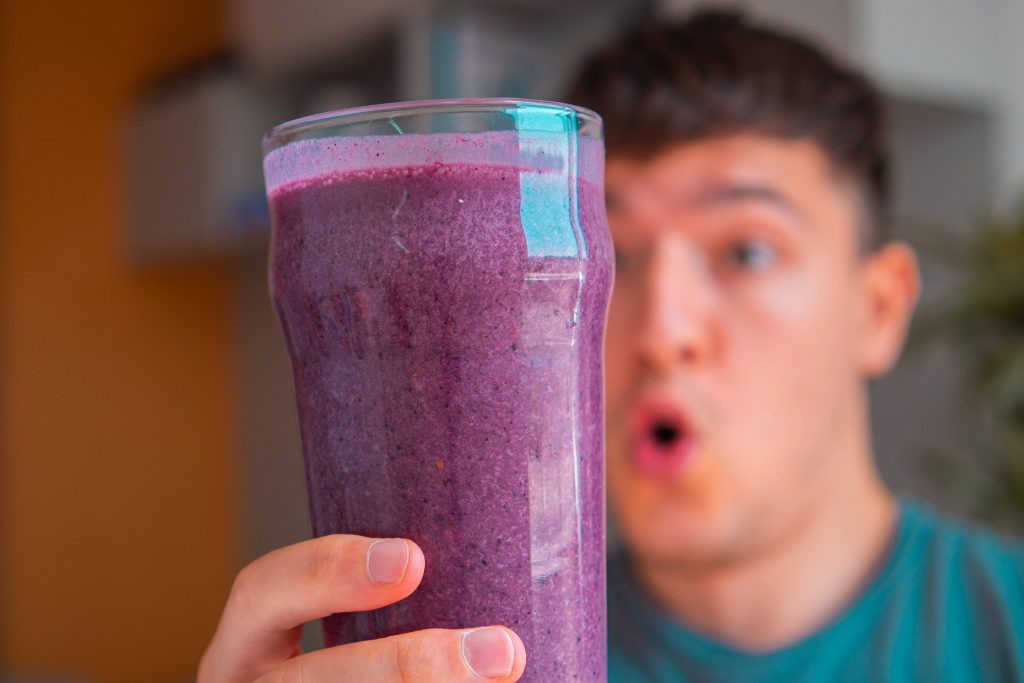
How to incorporate blueberries into your diet
What are the best ways to eat blueberries and should you supplement with them?
Many blueberry extract supplements can serve as an alternative to eating blueberries. These types may be more concentrated in certain ingredients or bioactive compounds like quercetin, resveratrol, lutein, or zeaxanthin, depending on the main goal.
However, this article is written about the benefits of eating fresh and raw blueberries. If you consume a supplement, make sure you consult with a doctor first and follow the instructions.
As always, I will rather use organic high-quality foods to fuel myself and with that being said, fresh & raw blueberries are the best go-to, supplementation is an alternative.
Ways to eat blueberries
| A handful of fresh, raw, and organic blueberries |
| Blueberry-Banana frozen smoothie |
| Blueberry-Spinach-Rice Milk smoothie |
| Blueberry & Oats muffins with raw cocoa powder |
| Blueberry protein bars with nuts |
| Protein pancakes (oats, eggs, banana) with berries and honey on top |
| Add it on top of pancakes with honey |
| Oatmeal with blueberries and almonds |
| Oatmeal with blueberries and almonds |
| Blueberry compote on whole-wheat toast |
| Organic Fruit salad (mango, blueberry, peach, and pineapple) |
| Frozen blueberry smash in Greek yogurt |
Blueberries are one of the healthiest foods on the planet. Packed with nutrients and antioxidants, with their high fiber and low-calorie profile is suitable for many diets. With benefits ranging from heart & brain health to boosting the immune system and strengthening the bones, blueberries are a superfood worth trying.
Try out these different ways to eat blueberries and find the top 3 you most enjoy. Incorporate blueberries into your regular diet on a daily or weekly basis, as an antioxidant power meal in between.
Conclusion
Blueberries are one of the most antioxidant-potent fruits, packed with tons of nutrients. Blueberries have very high ORAC value, leaving them with powerful anti-inflammatory properties. Potential benefits are improved heart health, anti-aging, eye protection, improved cognition, and improved digestion. As a versatile fruit, blueberries can be part of salads, and shakes or can be eaten raw by itself.
Frequently Asked Questions
What are the benefits of eating blueberries?
The potential benefits that come with eating blueberries are:
– may support cardiovascular health
– may improve cholesterol profile
– has the potential to improve blood flow
– contains powerful antioxidants
– potent anti-inflammatory effects
– aids in longevity & antiaging
– can work as a beauty tonic
– may be helpful for eye protection
– improves digestion and bowel movement
– supports brain function
– may aid in bone strength, health and mineralization
– potential antiviral, antimicrobial properties
Do blueberries provide benefits for the brain?
Yes, there is a potential benefit of eating blueberries for the brain. The most potent effect of blueberries in relation to brain health lies in its anti-inflammatory properties, due to the high amounts of antioxidants they possess. This may fight free radicals, reduce inflammation and DNA damage. It may result in improved memory, cognitive function, accuracy and potentially prevent cognitive decline. Some bioactive compounds in blueberries like catechins, quercetin, tannins and kaempferol may also module pathways associated to neuron signaling, neurotransmission and neuroplasticity.
Why are blueberries considered to be a superfood?
Because they are a low-calorie option which is loaded with nutrients. Blueberries pack a good amount of fiber, many antioxidants (flavonoids, phytochemicals, anthocyanins), a ton of vitamins and minerals such as: vitamin B1, vitamin B2, Copper, vitamin B6, vitamin C, vitamin K, and Manganese.

